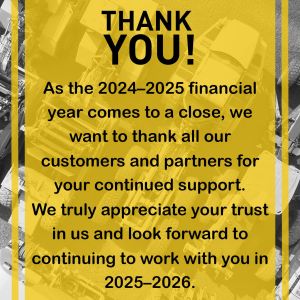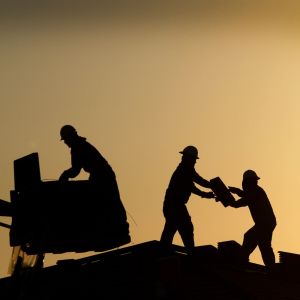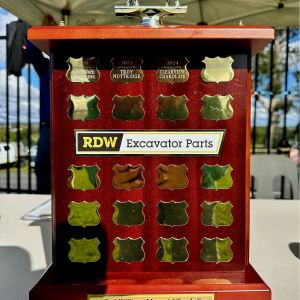When purchasing machinery, you need to ensure you make the right choices. To help you achieve the best possible outcome, we have put together a few tips to guide you when buying used earthmoving equipment.
Consider Your Needs
Make a list of uses you need the equipment to fulfil and weigh up your options. Consider your requirements regarding the equipment’s:
Size – will the machine be big or small enough to do the job? Consider:
- Can the machine access the areas you will be working in? For instance, if you are a pool installer, you need a narrow machine to access down the sides of houses on many jobs.
- How will you Transport your machine? What float size will be required?
- Capacity, for instance will the machine flow rates be sufficient to run any hydraulic attachments you may need? For a dump truck, will a larger machine with greater carrying capacity (and hence higher running costs) outweigh the lower outlay for a smaller machine?
Make and Model
- Ensure that the brand and model you buy has good after sales support. Are there viable alternative options (such as new replacement parts) to help you keep operating costs down?
- Commonality with your fleet – is it better to standardise on one brand/model for fleet management purposes? Or is it better not to put all your eggs in one basket and diversify your fleet?
- What is the resale value going to be like? Is the machine likely to be in demand so you can move it on when it comes time for you to upgrade?
- Reliability – is the machine going to give you the up-time you require? New technology is not necessarily better – has it proven itself to give the life you expect?
- Total cost of ownership – Buying a new machine means you have to factor in a much higher depreciation and finance amount, which is why many owners chose to buy good low hour used machines. Whilst fuel savings can be important, any savings are dwarfed by the capital investment and servicing/repair costs. How long will the key components last? What rebuild options are available?
Whether your preferred brand is a Caterpillar, Komatsu, Hitachi, Volvo or any of the other brands sold in Australia, do as much research as you can on any known machine faults for your chosen model, so that your machine inspector will pay particular attention to that section of the machine during their machine appraisal.
Specification of machine
- Does the machine have all the items you require already fitted, or can the seller provide what you require to match the machine you are buying? For example:
- Attachments, and are they the right ones? Are they good enough quality and compatible with the machine?
- Safety equipment (e-stops, fire equipment, hand rails etc)
- Piping, Quick couplers etc to run all the attachments you may require
- Manuals
History – is there a full service history available? Has the machine been getting serviced in accordance with the manufacturers requirements? Who has been doing the service and what is their knowledge and capability?
Your Business:
- What is your business? Does the machine suit what you are trying to do? For example, do you really want low ground pressure plates (like swampy plates), when most of your jobs are on firm ground?
- Utilisation – buy a machine that will give you a sufficient utilisation rate. The machine is only generating an income when it can be used, so purchase a machine the can do a wide spread of jobs within your business model.
- Profit per hour – what can you charge the machine out at? Obviously, you should try and maximise the difference compared to your cost per hour.
Research The Seller
The internet has made it easier than ever to find used machinery, but what it isn’t great at is telling you about the dealer or the individual that is offering the equipment for sale.
Be sure to check the reputation of the company, for example:
- How long have they been in business? Ensure that the seller has a good reputation to uphold, and has the capacity to support the products they are selling (i.e. financially stable business, workshop and technical capacity to support the machine being sold).
- Do they allow independent appraisals to be carried out on equipment? If not, why not?
- Do major finance companies consider them a reputable dealer so you can get any financing you may require?
- Do they offer after sales support and service? Don’t just take their word for it, ask to see the stock and facilities for yourself.
- Are you guaranteed a clear title on the equipment being purchased?
- What happens if the machine is not as it was sold to you? For private sales and auctions, there is usually no come back on the seller, so have you factored in the increased risk by reducing your purchase price accordingly?
- Are there further costs to pay? Don’t underestimate costs such as buyers premiums, transport costs (especially to get machines off restricted sites), and compliance costs (such as inspections, approvals, registrations etc).
- Have they had the pre-sale paint job to make the machine look good by covering up other machine faults?
- Do you trust the person and the business you will be buying from? There are many horror stories of people buying “bargains”, especially from overseas, not knowing who they are dealing with or what they are actually buying.
- If you are considering buying from overseas, do you know the costs and requirements to bring the machine into Australia? Is the model even supported here? Have you dealt with Australian Border Force (for instance asbestos certificates, fumigation and quarantine requirements etc) and other Government bodies?
The key to making a successful earth moving machinery sale is to satisfactorily answer as many of the above points as possible. The easiest and best way to buy a machine is usually to engage with a professional like RDW Machinery, who can take the stress away from you to allow you to concentrate on managing your business.



